Best Free Startup Tools
Whenever an aspiring startup decides to start a business, the first concern that comes to his mind is the ways to keep the cost to a minimum. Launching an online business isn’t about erecting a website and taking it online. There are several other procedures & necessary costs, similar as registering the sphere, getting a domain name, etc. Still, other functional costs can be reduced with the assistance of technology to keep the budget within the limit. Here comes the significance of the best tools for startups.
There are numerous tools for startups that help minimize the cost but also save time & make your business look & operate dashingly. From recruiting to design operations, CRM for startup to dispatch marketing, and every other important sector involved in running & growing an incipiency moment, there’s a tool for everything. Finding the right tools can be tricky, especially when time and resources are limited. One such way is by taking advantage of free startup tools whenever possible.
The only problem is your incognizance of these tools that can help you negotiate the same tedious tasks in no time and with minimum trouble. So, let’s explore some of the free tools for startups.
Here are 12 free tools that can help you.
1. Trello
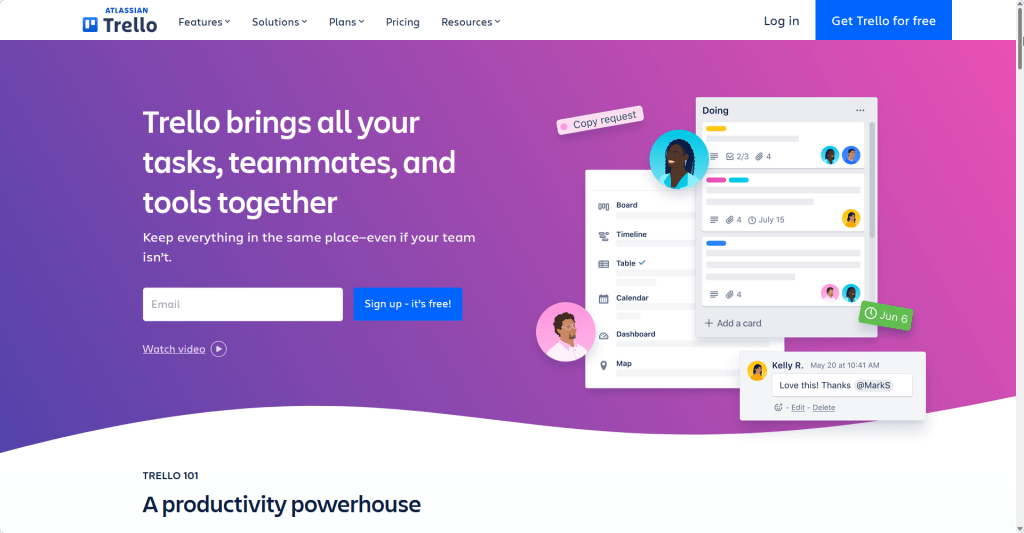
Internal communication, project collaboration, and management are vital for every successful startup. You can get all these things in one place using Trello. It is a leading online SAAS that allows users to visually organize their tasks and manage their work effectively with team members. Similarly Trello tells you what work to do, which work is in process, and how many jobs are already done. Moreover, it offers other features like posting regular business updates, redesigning websites, working on complex projects with many participants, and many more.
2. Hootsuite

Hootsuite is the most popular social media marketing tool for startups. It is used to manage multiple social media profiles from just one dashboard and helps you to save time and update. It makes scheduling, managing, and reporting social media content more accessible. Further, it facilitates user interaction by responding to every incoming message directed at multiple social media channels like Twitter, Facebook, LinkedIn in a single stream. To gain more new customers and stay competitive in the market, it is essential to stay connected with social media. So Hootsuite is a must-have.
3. MailChimp

MailChimp is an all-in-one marketing campaign tool used to create sign-up forms and campaigns, landing pages, Facebook and Instagram ads. Its user interface is easy to use, which allows sending almost 12,000 emails to 20,000 subscribers. Moreover its features include easy personalization, retargeting, impressive templates, making the software a good option for startups. Nevertheless, it let you learn more about your audience, target them precisely so that you can build a good relationship with them.
4. Canva

A startup needs to create graphics for its website, blogs, and social media in most cases. It’s when Canva comes into the picture. Canva is a graphic design platform that holds around a million fonts, photos, and icons. It enables the creation of visual content convenient, faster, and better. With the accessible version of canvas, uploading, adding, and creating photos is an easier task. Using drag and drop functionality and layout, users can choose thousands of templates and create impressive business cards, presentations, graphics, reports, resumes, wallpaper, and many more.
5. Zoom

The Covid 19 situation has forced many companies to allow their employees to work from home. There are a lot of apps available out there which can help you with video calls. But the best among them is Zoom. Zoom is a reliable cloud-based video communication app. The main features include unlimited one-on-one meetings, screen sharing, recording, and hosting video conferences (up to 100 participants for 40 minutes). Anyone can access this platform as it is well-suited with Mac, Windows, Android, IOS.
6. Zapier

Zapier is a tool used to integrate web apps and automate the most crucial business processes. It connects over 3,000 popular apps like Slack, Convertkit, Google docs without coding. It creates an infinite number of workflows. Zapier can use it to connect information between 2 or more app that you use without coding. Instead of copy-paste option, you can create Zapier workflow (Zaps) to do work automatically, saving time and effort. Startups can take advantage of thousands of free automation provided by Zapier.
7. Calendly
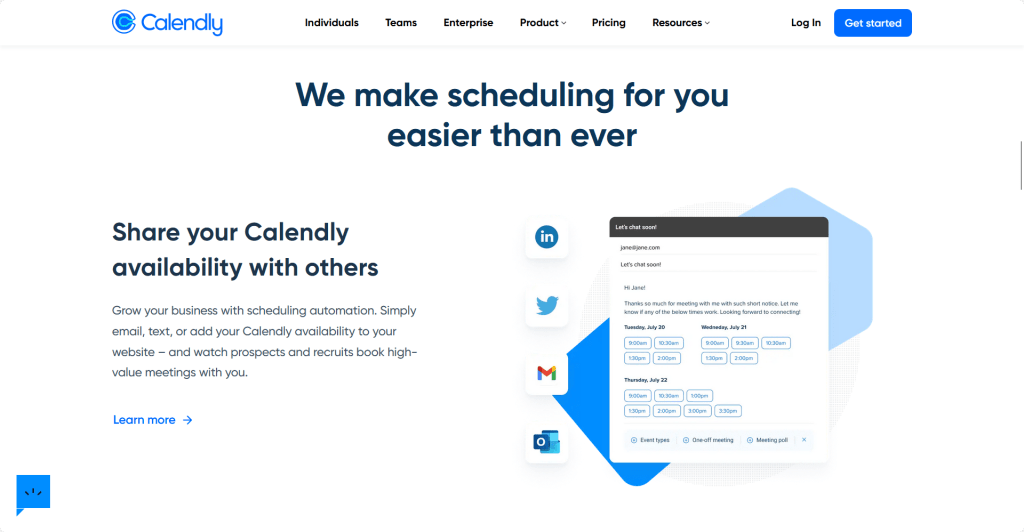
Without proper management, scheduling events, meetings, conference calls seems to be a headache for everyone. Here comes the need for Calendly, which is free and convenient. It’s a free scheduling app that keeps track of everything based on your availability. With this tool, you can decide when you’re available to take calls during the week and set daily meeting limits. One of the best part of this tool is that it integrates with other apps such as Gmail, Hubspot, Paypal, and so many more.
8. Google analytics

Google Analytics is one of the best free SEO tools for startups. The web analytics service offered by Google tracks website traffic and helps you establish a highly ranked website. With Google Analytics, it is easy to figure out where your traffic is coming out and how your app users and site engage with your content. Since Analytics works with Google advertising and publisher products, startups can connect their insights to reach out right customers to know more about their customers.
9. Wave
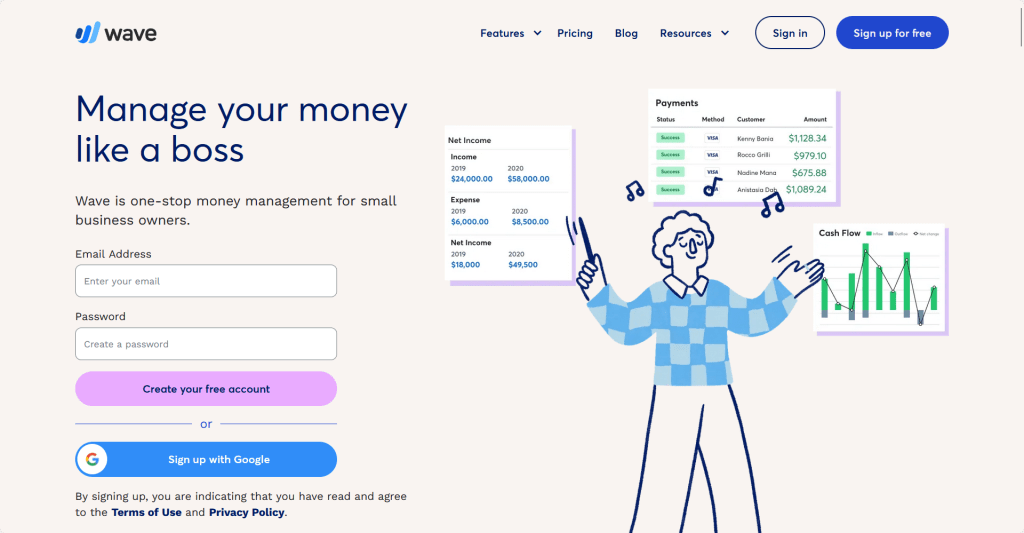
Most startups and small businesses use free accounting software named Wave. This software enables you to manage the financial aspects of your business. It also helps to create and send professional invoices with advanced features like automatic payments and recurring billing. Everything is automated, so it saves a lot of time and effort involved in these procedures. Instead of hiring an entrepreneur, startups can use Wave to track their expenses more easily. This app is also available in the mobile version so that you can quickly view all your invoices and receipts.
10. Freshdesk
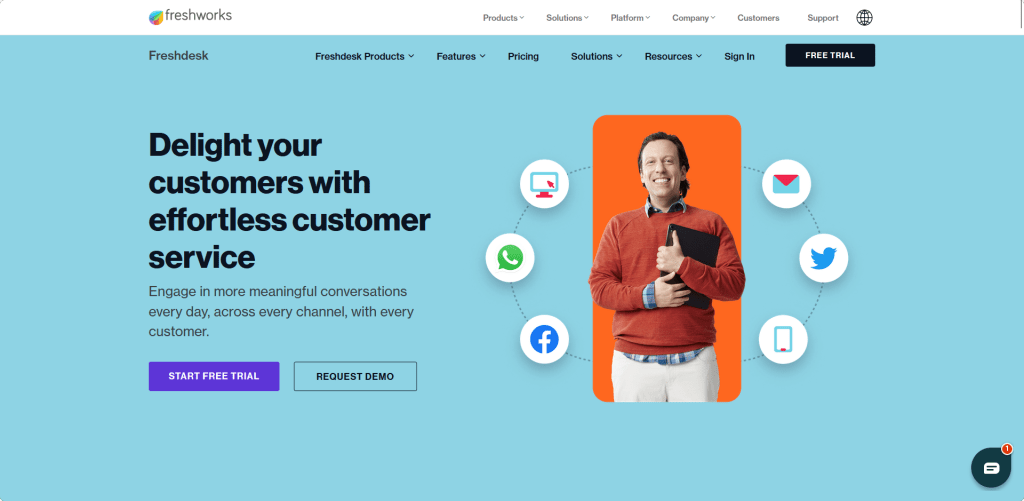
Freshdesk is an online platform for intuitive and collaborative customer service with intelligent automation features. It offers 30 days free trial for startups without having to enter the credit details. With Freshdesk, it’s easier to solve customer’s problems from ticketing and phone to messaging apps and social media. Further, it enables companies of all sizes to connect and deliver customer experience across all traditional and digital support channels. Its top features include email ticketing, social ticketing, Ticket dispatch, Ticket trend report, team collaboration.
11. Aha
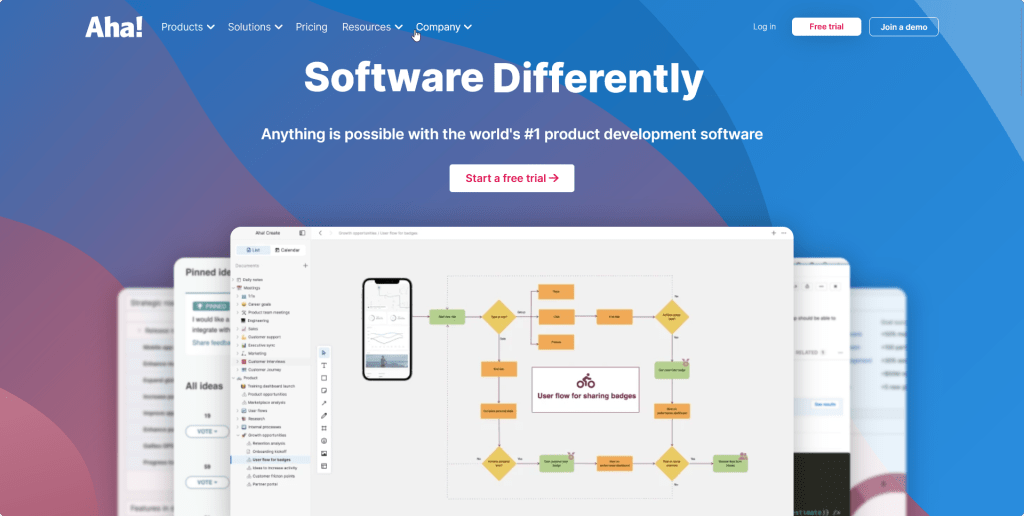
Aha is free roadmap software used to build excellent strategies for developing your business. Since startups are lean and tight on cash during their early stages, Aha provides a clear product vision and strategy, product collaboration, and defines business goals, and requirements to achieve them. It is specifically for startups to allocate budget and track ROI to those areas they need the most. Additionally, it facilitates initiatives to get into action simply and quickly.
12. Slack

Slack is top of mind for many startups. It is a messaging tool where teams can communicate via direct messaging and dedicated channels throughout the workday. With Slack, you can make quick phone or video calls with few clicks of the mouse, share files through Slack’s file integration, ensures data security, and access the screen sharing feature directly through its platform. It also promotes office culture among remote workers. The tool integrates with several apps like Google Docs, Dropbox, Zapier, and Salesforce. In short, Slack covers most of the things your startup needs to function correctly.
Bonus
- For startups that initially want to spend only a little bit on tools and software, group share tools are the best option. Group share tools is a platform containing collections of tools under different categories like SEO, designing, Social media etc., which are accessed and used by groups instead of being owned by individuals. Some of the best group share tools are Tools Ninja and Seotoolada.
- Startups can leverage websites like Product Hunt, a platform for product & tech-loving enthusiasts to share and geek out about the latest websites, tools and innovative tech creations. Product Hunt connects people working in product development with people interested in testing new products. They are free and are very beneficial for startups as they can try and test out newly launched products of various categories like productivity, tech, digital marketing, AI and more.
- Using free Chrome extensions – There are tons of free Chrome extensions that you can use on your website for all purposes like SEO, PPC research, productivity and much more. Make sure to use them for your website and business.
As a new venture, there is much to get done and consider. Free tools help them to smooth out the workflow process more efficiently. Use them wisely to quickly drive your startups to develop and grow better in the future. If you seek any doubts regarding tools for startups, talk to our experts and find out which tool is right for you and your business.
Related Topic: 10 Latest SaaS Tools Every Startup Should Use, Major types of startups in India






























